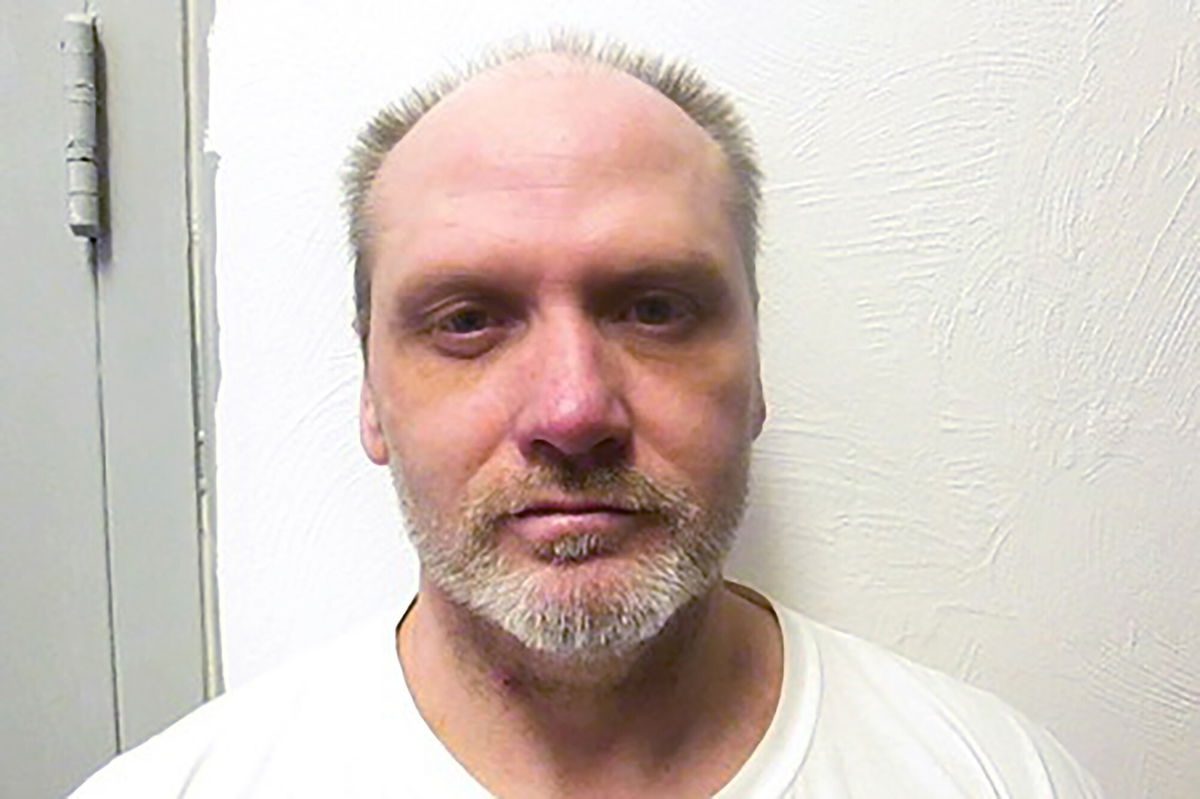Oklahoma executes James Coddington for 1997 murder, the first of 25 executions set through 2024

Oklahoma has executed 50-year-old James Coddington
By Dakin Andone, CNN
Oklahoma has executed 50-year-old James Coddington, the first of 25 death row inmates the state intends to put to death through 2024, the state’s corrections director confirmed Thursday morning.
Coddington, who was sentenced to die for murdering Albert Hale in 1997 amid his struggle with a crack cocaine addiction, was executed after Republican Gov. Kevin Stitt on Wednesday denied his request for clemency. Coddington’s attorneys and advocates had hoped his life would be spared, pointing to his remorse for Hale’s murder, his traumatic childhood and rehabilitation while on Oklahoma’s death row.
The time of death was 10:16 a.m. CT, Department of Corrections Director Scott Crow told reporters.
“Today’s not a good day, it’s not a bad day, it’s just a new day for our family,” Mitchell Hale, the victim’s son, told reporters after attending the execution. “We can finally move on. It’s not going to heal anything, but it closes this chapter.”
Coddington’s execution was the first of more than two dozen state officials plan to carry out between now and December 2024, at a pace of about one man a month. Opponents have been critical of the plan: There are outstanding questions about some inmates’ innocence or mental fitness for execution, their attorneys have said, and critics have pointed to the state’s recent history of botched lethal injections.
Those troubles — dating back to the 2014 execution of Clayton Lockett, who writhed and moaned on the gurney for 43 minutes before suffering a heart attack — had prompted officials to put executions on hold during investigations and reviews of capital punishment in the state. Executions resumed last October, with inmate John Grant, who convulsed and vomited on the gurney, per witnesses.
But there were “absolutely no issues” with Coddington’s execution, Crow said. “The execution today went in accordance with the protocol, with no issues at all.”
Coddington’s chest heaved during the execution, but it was not “dramatic” or to the point where his body lifted from the gurney, said the Associated Press’ Sean Murphy, one of five media witnesses of the execution. The inmate’s breathing appeared to be labored, he said, adding the execution was “pretty par for the course,” given the drugs used.
Coddington in his final words thanked his family, friends and lawyers, according to the media witnesses, and also addressed Stitt, saying, “I don’t blame you, and I forgive you.”
Coddington did not express remorse for Hale’s killing, Mitchell Hale said, saying the omission proved the inmate’s previous expressions of remorse weren’t “genuine.”
“He never apologized, he never mentioned my daddy, never mentioned my family,” the slain man’s son said. “So, there was no true remorse.”
Coddington’s supporters had tried to save his life, including during a hearing this month before Oklahoma’s Pardon and Parole Board, which voted 3-2 to recommend Coddington receive clemency, sending the decision to Stitt.
Coddington had asked for his sentence to be commuted to life in prison, where his advocates — among them the former director of the state’s Department of Corrections and a former Speaker of the state House of Representatives — said he had finally overcome his addiction and could serve as a good influence on other inmates.
“I don’t think it would serve the best interest of the state of Oklahoma to execute Mr. Coddington,” Justin Jones, the former prisons director, told Public Radio Tulsa this month.
State Attorney General John O’Connor and Hale’s family did not support clemency. And while Hale’s son told the parole board at the hearing he had forgiven Coddington, “my forgiveness does not release him from the consequence of his actions,” Mitchell Hale said, according to CNN affiliate KOCO.
Stitt ultimately denied clemency after he had reviewed both sides’ arguments, his office said Wednesday in a statement.
Coddington and his lawyers were “profoundly disheartened,” lawyer Emma Rolls said in a statement. “James is loved by many people,” Rolls told CNN, “and he has touched the hearts of many. He is a good man.”
24 more executions scheduled over next 2 years
Amid lingering concerns about inmates’ innocence or mental fitness and prior botched lethal injections, Oklahoma is on track to continue its steady string of executions, with more than half of the 43 inmates convicted and sentenced to death there due to be killed.
The spree is akin to other recent series of executions by Arkansas and the US government under the Trump administration but largely out of step with the continued decline of the death penalty in America.
Next to be executed in Oklahoma would have been Richard Glossip, who maintains he’s innocent of the 1997 murder of his boss. He was scheduled to be put to death September 22, but Stitt last week issued a 60-day stay to allow an appellate court to consider a new hearing. It’s Glossip’s fourth stay or reprieve, per his attorneys. His execution is now scheduled for December 8.
That means inmate Benjamin Cole Sr.’s execution is next, on October 20. Cole was sentenced to death for a 2002 murder, but his attorneys argue he is not competent for execution due to “profound mental illness and brain damage.”
Medical experts have diagnosed him with paranoid schizophrenia, they say in court filings, and they have requested a competency hearing before his execution date.
The families of the victims killed by those awaiting execution “have waited decades for justice,” the attorney general said in a statement as the execution dates were set, calling the victims’ loved ones “courageous and inspiring.”
O’Connor also pointed to Oklahoma’s vote in favor of the death penalty in 2016, adding, “I’m certain that justice and safety for all of us drove that vote.”
The-CNN-Wire
™ & © 2022 Cable News Network, Inc., a Warner Bros. Discovery Company. All rights reserved.